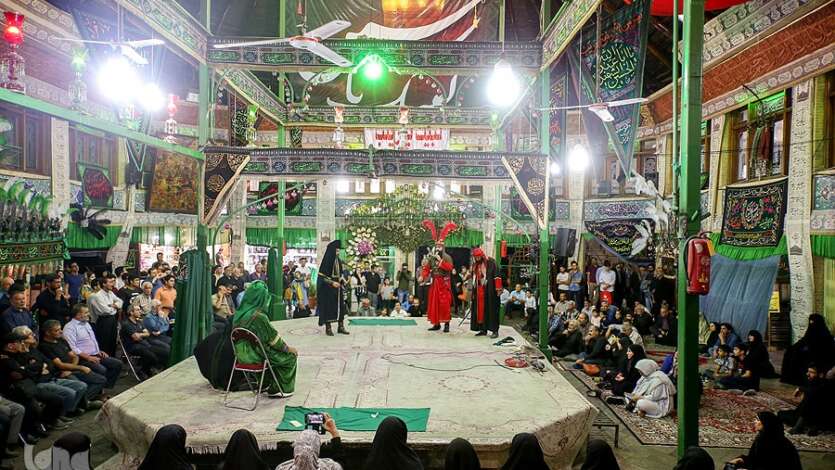Souls Sacrificed for Religion
By: Āyatullah Muḥammad Taqī Miṣbāḥ Yazdī
Translated by: Muhammad Reza Dorudgar & Zaid Alsalami
PART TWO
Crying out of veneration to God
The fourth piece of advice is:
والرَّابعةُ کثرةُ البُکآءِ من خشیةِ اللهِ یُبنی لکَ بکُلِّ دمعةٍ ألفَ بیتٍ في الجنَّةِ.
The fourth is increasingly crying out of veneration to God, where for the shedding of every tear one thousand houses will be built for you in Heaven.
The third advice was to fear Allah like as if you see Him, but this advice is something more than that. Someone who feels that God is present and oversees everything, and does not sin out of fear of God enjoys a very good state and is on a high degree of spirituality.
However, it could be that this fear of God has such an impact on the soul and spirit so much that it results in the forming of a spiritual state that we call khushūʿ and khashya. This state, which is also accompanied with a special kind of softness of the heart makes such a person involuntarily shed tears whenever they remember God.
The Prophet (ṣ.a.w.) advised the Commander of the faithful (a.s.) that he should try to do this more and more, to establish this state in his soul as much has he can:

کثرةُ البُکآءِ من خشیةِ اللهِ
Crying increasingly out of veneration to God.
In further explaining how important this is, the Prophet (ṣ.a.w.) then says:
یُبنی لکَ بکُلِّ دمعةٍ ألفَ بیتٍ في الجنَّةِ
Where for every tear shed, one thousand houses will be built for you in Heaven.
This act is so loved by Almighty God that for every teardrop that is shed out of venerating God, He will grant not one, or two, or even one hundred houses, but one thousand houses in Heaven! Yes, one thousand houses for every teardrop that is shed out of Divine veneration.
There are of course different types of weeping and crying, and this has been extensively discussed by our scholars in detailed books in its appropriate place. Sometimes crying is out of fear of punishment, sometimes it is when one is requesting something, or for solving a problem, or they might be tears of yearning, and so on.
There is also weeping that comes out of shyness (ḥayāʾ), or from abandoning everything and turning to God, or from feeling weakness and incapable in the presence of the Magnitude of Divine Everlastingness. This is the kind of crying that the Prophet (ṣ.a.w.) says that Almighty God will grant one thousand houses in Heaven to His servant for every teardrop that is shed.
Of course, the cultural state of our society has unfortunately evolved in such a way that these issues might be difficult to comprehend by our youth and younger generation, or far from their minds. This is because of weakness of our Islamic culture and lack of knowledge, or else many such issues similar to this have been mentioned in our holy Quran and in traditions.
Sacrificing ourself for the sake of religion
In this discussion, what we want to emphasise on as an introduction to studying the occasion of Muḥarram and ʿĀshurā is the fifth advice the Prophet (ṣ.a.w.) gave in his advice to the Commander of the faithful (a.s.):
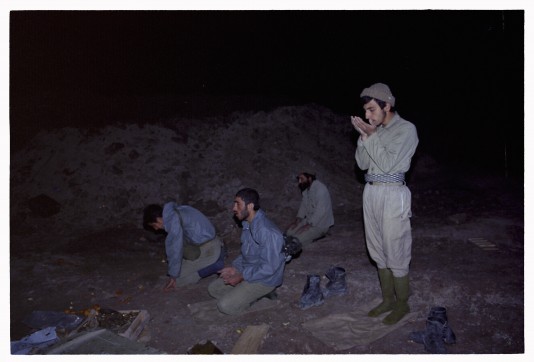 الخامسةُ بَذلُکَ مالَکَ ودمَکَ دونَ دینِکَ.
الخامسةُ بَذلُکَ مالَکَ ودمَکَ دونَ دینِکَ.
The fifth is the giving of your money and your blood for the sake of your religion.
One of the important characteristics of the Shīʿa School of Thought is the feature of wishing or seeking-martyrdom (shahādat-ṭalabī) and sacrificing one’s blood and soul in the path of defending religion. This feature that can be derived from the teachings of the Ahul Bayt (a.s.) is so highlighted in the Shīʿa faith that the Shīʿa of today are globally known for having this quality. Sociologists have concluded that this feature is one of the secrets to the success and continuation of the Shīʿa ideology throughout history.
All of us know generally that the history of Shīʿism, from the beginning of Islam till now has always been accompanied with extreme persecution and alienation. We have also frequently heard this narration that says:
إرتدَّ النَّاسُ بعدَ رسولِ الله الاّ ثلاثةٌ.
After the Messenger of God (ṣ.a.w.), all but three people renounced! [1]
According to this tradition, after the passing away of the Prophet (ṣ.a.w.), all the Muslims in whatever particular way had deviated from their religion and had a problem in their faith, except for three people.[2] These three were Salmān, Abū Dharr and Miqdād. Of course, ʿAmmār and others joined this group later on, but in comparison to the number of those who were on the opposite side, their group was so small so much that they were insignificant.
After this, the Shīʿa continued to be a minority in Muslim society, and faced a lot of pressure and discrimination. They went through unbearable persecution, many calamities, oppressions, betrayals and violation of rights. We are all generally familiar about these cases, and so there is no need to mention them here in this study.
In all of this, it was the Infallible Imāms (a.s.) and Shīʿa leaders who were always at the top of the list of people who suffered the most severe of alienation, hardships and calamities. In their biography, with all the oppression and hardships they endured, it says that in any situation they were in, they never abandoned their beliefs, their teachings or their principles.
They diligently insisted on preserving these valuable qualities, and they fought for them, even with their own lives. There is a famous narration from the Ahul Bayt (a.s.) on this that says:
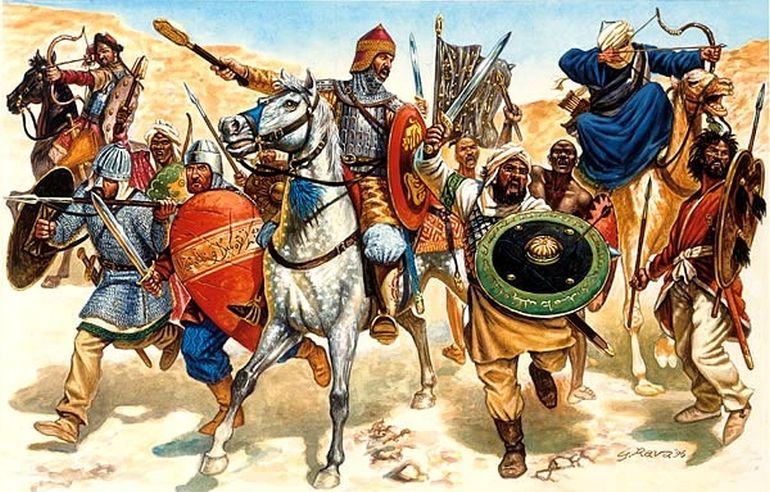 ما منَّا إلاّ مقتولٌ أو مسمومٌ.
ما منَّا إلاّ مقتولٌ أو مسمومٌ.
Each one of us will either be slain or poisoned.[3]
Therefore, no member of Ahul-Bayt (a.s.) was safe from their enemies. Then, at the end of all of this, and after enduring all kinds of deprivations, oppression and betrayal, they were martyred.
This hatred and enmity those people had towards Ahul-Bayt (a.s.) was so intense that they killed some of the Imāms (a.s.) who were still very young, martyred even before reaching the age of thirty.
The reason behind the Umayyad and Abbasid’s enmity towards the Imāms (a.s.)
It is important to understand this hatred and animosity they had towards Imām ʿAlī and the Ahlul Bayt (a.s.). Where did this come from? What was it that caused them to insist on their enmity, and to this extent, and try to suppress and pressure them by any means?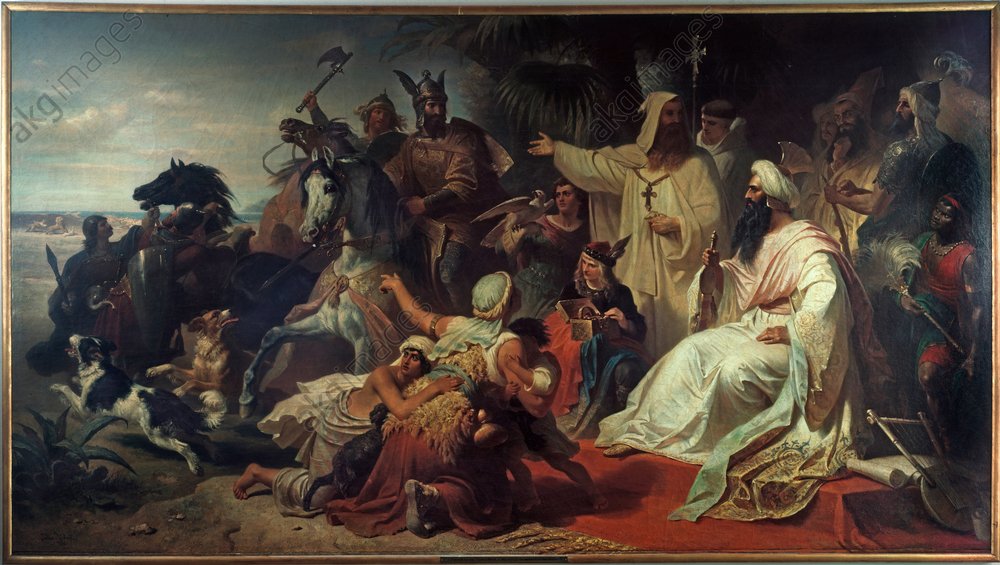
Was it just a blood feud and tribal vengeance that made them so audacious to that extreme where they would commit such an atrocity like the tragedy of Karbala and ʿĀshurā?
Was it only because the Ahul Bayt (a.s.) were from the Banī Hāshim tribe, and these people were from tribe of Banī Umayyah? Was this the reason that made them have so much enmity towards the Ahul Bayt (a.s.), to such a level that did not leave even one of them safe and killed all of them?
Also, this enmity was not limited only to Banī Umayyah, but Banī ʿAbbās who had a close kin relation to the Ahul Bayt (a.s.) were also partners with Banī Umayyah in their enmity and oppression to the Ahul Bayt (a.s.). Some of the Abbasid hostility and crimes towards Ahul Bayt (a.s.) were even more violent and worse than what Banī Umayyah had done.
This becomes even more thought-provoking when we note that Banī ʿAbbās primarily gained power in the name of Ahul Bayt (a.s.), under the pretence of support for the Ahul Bayt (a.s.) in rising against Banī Umayyah. The slogan the Abbasids used was “we have revolted for the sake of pleasing the Progeny of Muḥammad (ṣ.a.w.)”.
The Abbasids used this kind of propaganda to win people’s support, saying that the Umayyads have oppressed Ahul-Bayt (a.s.) and Prophet’s (ṣ.a.w.) progeny, and have murdered many of them. They said that they came to support Ahul-Bayt (a.s.) and claim their rights from the Umayyads.
It was the people of Khurāsān and Abū Muslim al-Khurāsānī who helped and supported Abū al-ʿAbbās Saffāḥ[4] to assume power, and then Manṣūr Dawānīqī, then others after him. Again, the main claim was that they are supporters of Ahul-Bayt (a.s.) and have come to eliminate the oppressions and hardships the Ahul-Bayt (a.s.) and the Shīʿa were facing.
However, in action, everyone saw that the hardships, heavy pressure and severe conditions the Abbasids put on Ahul-Bayt (a.s.) was nothing less than what the Umayyads did. In some cases, the Abbasids were even worse and more oppressive.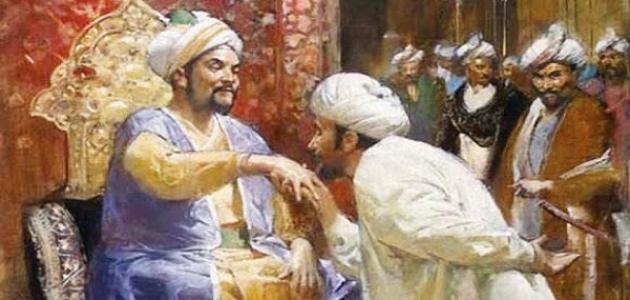
Therefore, this enmity was not personal or a family dispute, or tribal vengeance. It was something far more than this, and it stemmed from somewhere else.
To highlight one of a thousand cases, we will mention an example from history to pinpoint the main cause of this enmity:
Sufyān ibn Nazār narrates the following:
I was with a group of people in a gathering of al-Maʾmūn, and he looked at us and said: “Do you know who taught me the Shīʿa faith?” Everyone said: “We do not know.” Al-Maʾmūn said: “I learnt the Shīʿa faith from my father Hārūn!” Everyone was surprised and said: “Hārūn killed members of the Ahul-Bayt (a.s.). How did you learn the Shīʿa faith and devotion to Ahul-Bayt (a.s.) from him?!”
Al-Maʾmūn said: “One day, Faḍl ibn Rabʿī came to visit my father and said: “There is someone at the door, and it might be Mūsā ibn Jaʿfar ibn Muḥammad ibn ʿAlī ibn Ḥusain ibn ʿAlī ibn Abū Ṭālib.” My father turned towards me, al-Amīn, al-Muʾtamin, and everyone else that was in the gathering and said: “Make your appearance neat and be careful of your behaviour!” He then gave the order to bring Mūsā ibn Jaʿfar to stand in front of his throne! With the traces of worship were clearly seen in the appearance of Mūsā ibn Jaʿfar, he entered our gathering and in front of the door he wanted to dismount from the animal he was riding, which was a donkey.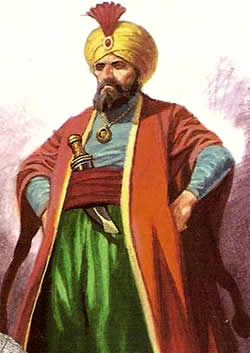
My father shouted: “By God, no! You should come in front of my throne riding your animal and take your foot from the animal and put it on my throne and get off!” Mūsā ibn Jaʿfar went in front of my father’s throne riding the donkey and got off in front of the throne. My father made him sit beside him, with high respect. Throughout the duration of talking to each other, he showed the utmost courtesy and respect to the Imām (a.s.). While bidding him farewell, he came down from his throne and saw him off with reverence and extreme respect. He then pointed to me, al-Amīn and al-Muʾtamin to accompany him until he exits the palace and to hold the animal so that he could mount it.
Al-Maʾmūn said that when the Imām (a.s.) left and nobody else was in the gathering, he asked his father: “Who was that person? I have never seen you show that much respect to anyone the way you did to him! It is not of our status that we lower ourselves to other people in such a way and give this person so much respect and show him out!”
Hārūn said: “If I apparently am the leader of the people and rule over them, I have reached this position by force of the sword, but the real and right leader is this person, Mūsā ibn Jaʿfar!
My son! This person is more deserving of the position of caliphate than me or any other person. However, you must know that by Allah, even if you, my own son wants to challenge me over the caliphate, I will gouge your eyes out, because rulership is barren!”[5]
From this and other similar events, we can see that the enmity the Umayyads and the Abbasids had towards the Ahlul Bayt (a.s.) was not a blood feud or family hostility with Banī Hāshim. The real reason was that Ahlul Bayt (a.s.) wanted the true Islam to be implemented in the society, and the leader of the Muslims who rules over them be someone who is appointed by God and has the authority to do so.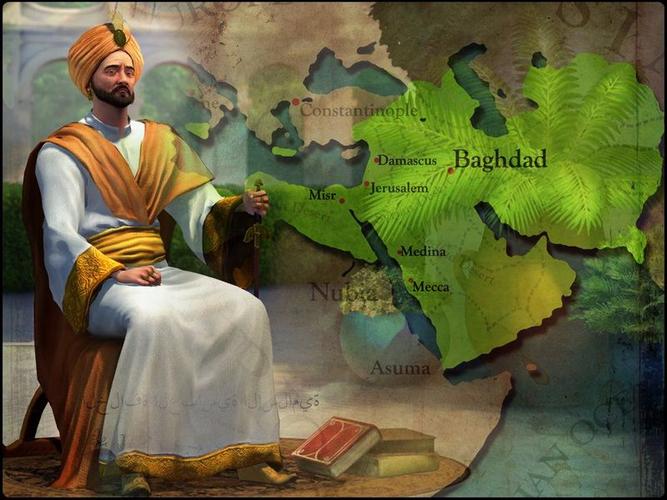
On the other side, in the name of caliphate and as successors of the Prophet (ṣ.a.w.), the Umayyads and the Abbasids wanted to reach their worldly goals and carnal desires. The disagreement was about leading, governing and ruling the society. The Umayyads and the Abbasids wanted to have power of ruling, and if someone fought them over this, or if they thought that someone might be a threat to their government, they would deal with that person with all their brute force and eliminate them.
It is for this reason that they hated Ahlul Bayt (a.s.) and killed them one after the other.
All of these things occurred, even even when the Imāms (a.s.) observed dissimulation (taqiyyah) and did not officially declare that they were claiming the caliphate or the government, or say that the authority of leadership should be in their hands.
Even though they did not claim or demand anything, we still see that calamities fell upon them. If they would have publicly declared such a claim, then definitely their enemies would not leave any name or presence of the Shīʿa and the Ahlul Bayt (a.s.).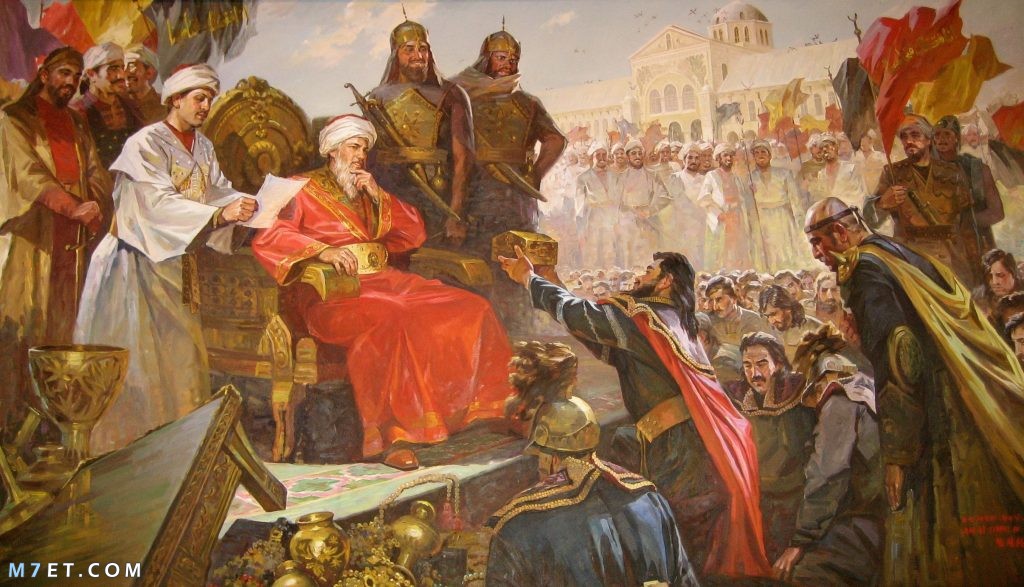
Shīʿism has reached us today, with so much of the teachings of Ahlul Bayt (a.s.), all due to the diligent strategies and efforts of the Ahlul Bayt (a.s.). The very foundation of Islam is in debt to the management of Ahlul Bayt (a.s.) and their teachings. If it was not for their efforts and the pain and sufferings they endured, there would be nothing Islam, except for its name. The lessons and teachings of Ahlul Bayt (a.s.) and students that they trained is the secret for the remaining and continuation of Islam. Therefore, not only the Shīʿa, but all other sects of Islam are in debt to the efforts of the Imāms (a.s.).
Cont….
[1] Biḥār al-Anwār, vol. 22, p. 351, ḥ. 76. Also see: Al-Mufid, al-Ikhtisas, p. 10. Al-Tusi, Ikhtiyar ma’rifat al-rijal, vol. 1, p. 38.
[2] This explains that although the word irtadda was used, which is usually understood and translated into English as apostacy, however, in this context it is not looking at the jurisprudential term of irtidād, but referring to the majority of Muslim’s renunciation of their commitment in pledging allegiance to the rightful successor, Imām Ali (a.s.). [Tr.]
[3] Biḥār al-Anwār, vol. 7, p. 219, ḥ. 71.
[4] His lineage is Abū al-ʿAbbās, ʿAbdullah ibn Muḥammad ibn ʿAlī ibn ʿAbdullah ibn ʿAbbās ibn ʿAbdul Muṭṭalib (104/721–136/754 AH/CE). As is known, ʿAbbas ibn ʿAbdul Muṭṭalib was the Prophet’s (s.a.w.) uncle, and this is how the Abbasids are related to Ahlul Bayt (a.s.). Al-Saffāḥ was the first of the Abbasid caliphs, assuming the role at the young age of sixteen, and he gave himself the title of al-Saffāḥ, which means “the blood-thirsty” or “the blood-shedder”. [Tr.]
[5] Biḥār al-Anwār, vol. 48, p. 121, ḥ. 4
![]()


